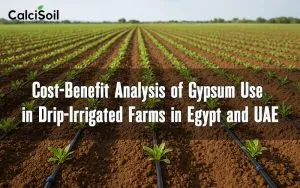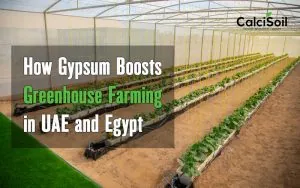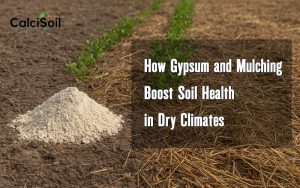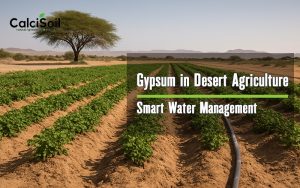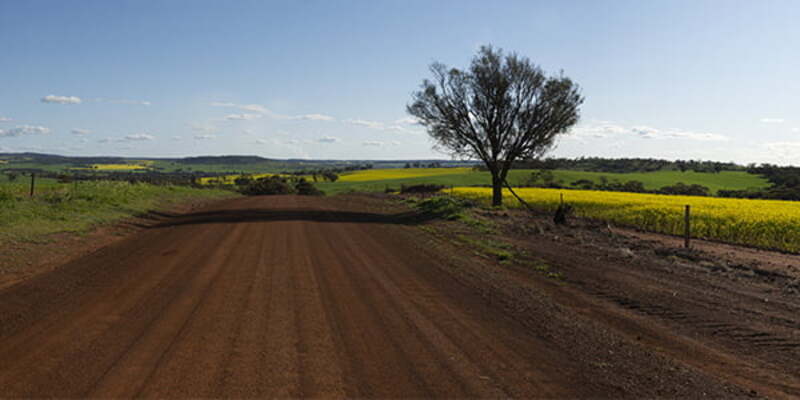
Agricultural gypsum in East Africa
East Africa is an agricultural hub that employs millions of people in the region. The countries that make up East Africa, including Tanzania, Kenya, Uganda, Rwanda, Burundi, and South Sudan, have diverse agro-ecological zones. each with its own climate, soils, and topography. Highland areas are ideal for growing high-value crops such as coffee, tea, and horticultural crops. while lowland areas are suitable for growing crops such as maize, sorghum, and millet.
However, climate change remains a significant challenge for East African farmers. Which is leading to unpredictable weather patterns, increased incidence of pests and diseases, and soil degradation. To cope with these challenges, farmers are adopting various strategies. Such as crop diversification, conservation agriculture, and using improved crop varieties and animal breeds.
Using agricultural gypsum in East Africa
Agricultural gypsum is an increasingly popular soil amendment used in East Africa to improve soil structure and fertility. In areas with soils low in calcium and high in aluminum, agricultural gypsum can help improve soil structure. Also increase calcium availability, reduce aluminum toxicity, improve nutrient availability, reduce erosion, and reduce soil salinity.
However, the effectiveness of agricultural gypsum on soil in East Africa may vary depending on the specific characteristics of soil. such as pH, texture, and nutrient levels. Furthermore, it is important to use agricultural gypsum in appropriate amounts and not to over-apply it. As excessive use can lead to soil alkalinity and other negative effects on soil health. Therefore, the use of agricultural gypsum in East Africa should be combined with other soil management practices. such as crop rotation, cover cropping, and organic matter use, to promote sustainable soil health and improve crop productivity.
Supplying agricultural gypsum in East Africa
Agricultural gypsum is highly popular in East African countries such as Tanzania and Kenya. For improving soil and other uses of gypsum. For example In Tanzania, there are some plant species that require agricultural gypsum for better growth. These species include plants that are sensitive to calcium and require soil with a high pH. Some of these plants are.
_ Sunflowers: Sunflowers are sensitive to calcium and require soil with a high pH. The use of agricultural gypsum in soil can help increase calcium in soil and improve sunflowers growth and performance.
_ Wheat: Wheat requires soil with a high pH to grow well. The use of agricultural gypsum in the soil can help increase the pH in the soil. Also improve the growth and performance of wheat by increasing the uptake of nutrients.
_ Tomatoes: Tomatoes require soil with a pH between 6 and 7 for optimal growth and fruit production. Agricultural gypsum can help to increase the pH of acidic soils and improve soil structure. which can promote healthier root growth and better nutrient uptake in tomato plants.
_ Beans: Beans are leguminous plants that require soil with a pH between 6 and 7.5 for optimal growth. The use of agricultural gypsum can help to increase the pH of acidic soils and improve soil structure. which can promote healthier root growth and better nutrient uptake in bean plants.
_ Peanuts: Peanuts are a leguminous crop that require soil with a pH between 5.8 and 6.2 for optimal growth. Agricultural gypsum can help to increase the pH of acidic soils and improve soil structure. which can promote healthier root growth and better nutrient uptake in peanut plants.
_ Citrus fruits: Citrus fruits such as oranges and lemons require soil with a pH between 6 and 7.5. For optimal growth and fruit production. Agricultural gypsum can help to increase the pH of acidic soils and improve soil structure. which can promote healthier root growth and better nutrient uptake in citrus trees.
However, due to resource scarcity and numerous soil and climate issues, using high-quality agricultural gypsum is of special importance. One way to access high-quality agricultural gypsum is through agricultural gypsum exporter companies. Ever Bright is one of the few companies that produces high-quality agricultural gypsum. It has been producing and supplying this vital product for many years.
Ever Bright is a company that specializes in producing high-quality agricultural gypsum for farmers in East Africa and other regions. The company is committed to improve soil fertility and crop productivity by providing farmers with a reliable source of gypsum. That can help to improve soil structure, reduce soil compaction, increase water infiltration, and promote healthier root growth.
Ever Bright’s agricultural gypsum is mined from high-quality deposits and processed using advanced techniques. In order to ensure that it meets the highest standards of purity and quality. The company’s gypsum is rich in calcium and sulfur, which are essential nutrients for plant growth. And has a low aluminum content, making it ideal for use in soils with high aluminum levels.
In addition to producing and supplying agricultural gypsum, Ever Bright also provides technical support and advice to farmers. on the use of gypsum and other soil amendments to improve soil health and crop productivity. The company’s experts can help farmers to assess their soil condition, determine the appropriate amount of gypsum to apply. And also develop a customized soil management plan that includes gypsum and other soil amendments.
EverBright’s commitment to quality and customer service has made it one of the leading agricultural gypsum suppliers in these regions. The company’s gypsum has been widely used by farmers to improve soil fertility, boost crop yields, and promote sustainable agriculture.

